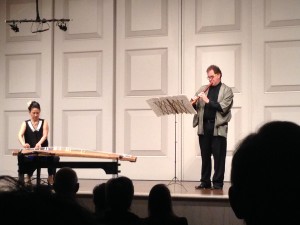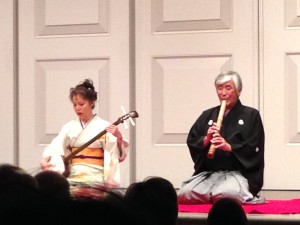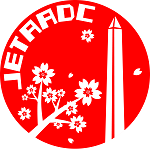David spent his time on JET as an ALT in Shintotsukawa, Hokkaido from 2008-2013 before returning to his native Maryland. He currently works for the Embassy of Japan in Washington, D.C.
Returning to the Washington DC area after JET I realized what a great city it is for cultural activities including Japan-related events. With places such as the Kennedy Center, the Freer & Sackler Gallery of Art, the JASW, the JICC, and several local universities regularly holding events and activities (don’t forget the National Cherry Blossom Festival!) there are many opportunities to experience the arts of Japan.
This past Saturday, October 25th, I attended a free concert at the Freer Gallery of Art that featured the traditional Japanese instrument the shakuhachi. You may be familiar with the sound of the shakuhachi if you have seen Japanese period films. It is also used in contemporary music and is featured in many Hollywood film soundtracks including Jurassic Park and Braveheart.
Saturday’s concert was a celebration of the 40th anniversary of the Mujuan Shakuhachi Dojo in Kyoto. It was founded by Yodo Kurahashi I and is now headed by his son, Yodo Kurahashi II, who was the featured performer.
The first half of the program focused on the shakuhachi alone with traditional songs. The soloists included not only Yodo-sensei but also American shakuhachi master Ronnie Nyogetsu Seishin Seldin and two of their disciples (Phil Nyokai James and Stan Kakudo Richardson). Each soloist had their own personal instrument with its own unique sound.


For the second half the shakuhachi was placed in an ensemble setting. Two modern duets with the koto (played by the virtuosi koto players, Junko Shigeta and Masayo Ishigure) featured the versatility of both instruments by pushing the boundaries of their expressive powers. Another American shakuhachi player, James Nyoraku Schlefer, also performed.


The final piece was a large work that consisted of several traditional songs that expressed the moods of different seasons. It was performed with two shakuhachi (Yodo-sensei, Seldin-sensei), koto (Miyuki Yoshikami), and shamisen (Yoko Hiraoka).


It was a wonderful concert and one of the best parts was that it was presented free of charge (something that is greatly appreciated by those living in and around DC). If you are interested in Japan-related cultural events and activities I recommend keeping an eye on the venues I mentioned earlier. If you know of any other venues in the DC area that often feature Japanese arts let us know in the comments below!


Leave a Reply